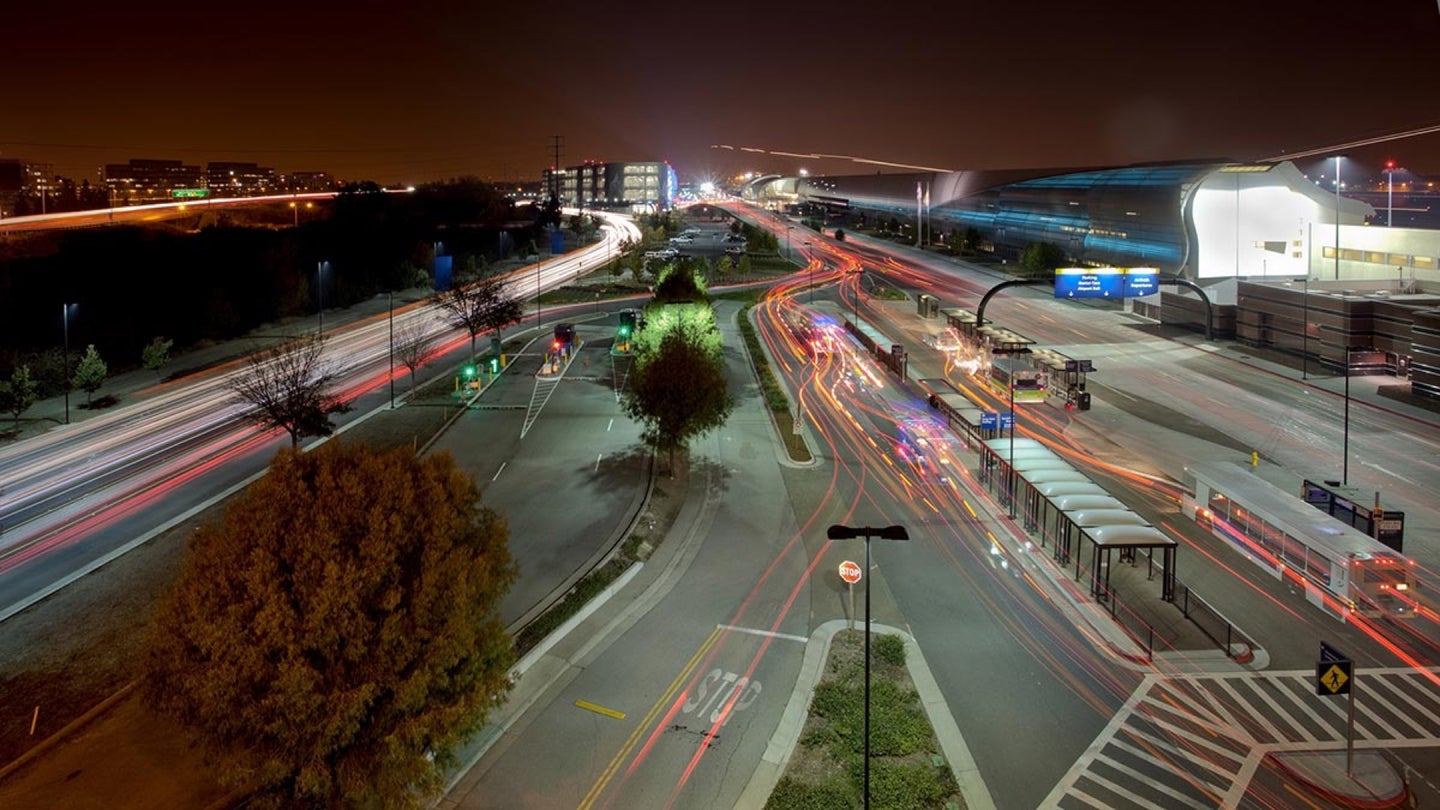Intel Says Smart Cities Can Save City Folk 125 Hours Per Year
The internet of things aims to alleviate traffic jam woes.

As you’re sitting gridlocked in bumper-to-bumper traffic, chances are you’ve thought to yourself, “How? Why? Why me?” But before you look for a place to point your rush hour-tensed finger, Intel might have a solution. According to the new Intel-sponsored study executed in partnership with Juniper Research, it is estimated that through the integration of internet of things technology, “smart cities” could save citizens up to 125 wasted hours per year.
This announcement certainly comes as welcome news for anyone living in the world’s most congested, traffic-laden metropolises. In Mexico City for instance, with its some 20 million residents, a rush hour commute can mean 59 percent extra travel time. And in a recent Intel blog post, the company noted that gridlock can cause drivers to lose up to 70 hours per year. Meanwhile, this congestion is only expected to rapidly augment. In 2016, the U.N. announced that by 2050, 65 percent of all humans will be residing in cities.
In the Intel post, Windsor Holden, head of forecasting and consultancy at Juniper Research, went on to state, “Analysts tend to focus on the technical underpinnings of building a data-centric world. We can’t overlook the importance of the real human benefits that smart cities have. Connected communities, municipal services and processes have a powerful impact on a citizen’s quality of life.”
In an effort to tackle the emergence of megacities, congestion, pollution, and quality of life, the Intel-sponsored study examined four keys areas: mobility, public safety, and productivity.
For the research pool, the study ranked the top 20 global smart cities by their performance and project deployments. Sorry, L.A., you’re nowhere in sight. In the mobility department, Singapore, San Francisco, London, New York, and Barcelona take the slots as the top five performers. Singapore, San Francisco, and London are leading the charge in the application of “smart, connected traffic solutions, in conjunction with very strong policy curtailing car ownership in an effort to reduce the number of vehicles on its road,” the study states.
In total, the study determined that through the use of these IoT solutions integrating intelligent traffic systems like traffic light phasing, enhanced tolls, and smart parking systems could add as much as 60 hours of free time back to city dwellers’ lives. Ten hours lost versus seventy sounds like a sweet deal indeed.
With these mobility tactics combined with public safety, healthcare, and productivity solutions, Intel is gunning to free up that 125 hours per person annually. But what we do with all that time? The study touts that with this spare time citizens could get active, improve earning potential and—duly noted—take a long vacation.
